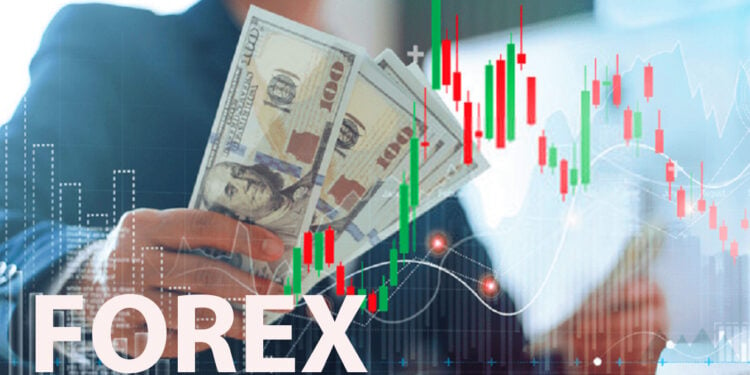As Nigerians seek new avenues for financial freedom and diverse income streams, many are exploring the potential of earning passive income through online forex trading.
This method, known for its allure and risk in equal measure, is gaining traction among those looking to capitalize on the dynamic global currency markets.
Foreign Exchange(Forex) trading involves buying and selling currencies on a global marketplace. It is the largest and most liquid financial market in the world, with daily trading volumes exceeding $6 trillion. Traders speculate on currency pairs, such as USD/NGN or EUR/USD, aiming to profit from the changes in exchange rates. Unlike traditional investments, forex trading operates 24 hours a day due to the overlapping time zones of major financial centers worldwide.
In Nigeria, the interest in forex trading is burgeoning. With the country’s high unemployment rates and economic instability, many see forex trading as a viable alternative to traditional employment. However, the lack of adequate financial education and the presence of fraudulent schemes pose significant challenges.
Many traders use algorithmic trading systems or ‘trading bots’ to automate their trades. These systems are programmed to execute trades based on predefined criteria, removing the need for constant monitoring. They analyse market trends and execute trades in milliseconds, potentially capitalising on opportunities that human traders might miss.
There are also copy trading services, where novice traders can replicate the trades of experienced investors. By following successful traders, beginners can potentially earn returns similar to those of their chosen experts, without needing in-depth knowledge of the market.
While the prospect of earning passive income through forex trading is enticing, it is essential to understand the inherent risks. The forex market is highly volatile, and while automation and expert guidance can mitigate some risks, losses are still possible.
As forex trading often involves leverage, allowing traders to control large positions with a small amount of capital it can also magnify losses, potentially wiping out an entire investment, as much as it can amplify profits. Currency values can fluctuate rapidly due to economic events, political instability, or market sentiment. Such volatility can lead to significant gains but also substantial losses.
With less regulation compared to other financial markets, the near lack of regulation can expose traders to unscrupulous practices by brokers, even as fraud and scams are rife in the industry. The forex market attracts fraudulent schemes promising guaranteed returns or high profits with minimal risk. It’s crucial to conduct thorough research and use reputable brokers and platforms.
Automated trading systems and platforms can experience technical issues, including software bugs or connectivity problems, which might lead to unintended trades or missed opportunities. Asides these, emotional decision-making can lead to poor trading choices with fear, greed, and overconfidence negatively impact trading outcomes.
In venturing into forex trading, there are some things to consider. First, the importance of education and research cannot be overemphasized. Those interested in forex trading need to be equipped with knowledge of forex trading, market analysis, and risk management. Numerous online courses, webinars, and resources are available to help beginners build a strong foundation.
It is important for traders to seek reputable educational resources and join communities where they can learn from experienced traders. Platforms like YouTube, Forex forums, and local seminars can provide valuable insights and practical knowledge.
Similarly, selecting a reputable broker is vital. There is need to look for brokers that offer robust security measures, user-friendly platforms, and transparent fee structures. Regulatory oversight by bodies such as the Financial Conduct Authority (FCA) or the Commodity Futures Trading Commission (CFTC) adds an extra layer of security.
As a beginner, one ought not to empty the purse into forex trading, rather, begin with a demo account to practice trading without risking real money. Once comfortable, start with a small investment and gradually increase as you gain experience and confidence.
Utilise automated trading systems or copy trading platforms will help streamline the trading process and potentially increase profitability.
As technology advances, the tools and resources available for online forex trading continue to evolve, making it more accessible and potentially profitable for a broader audience in Nigeria. However, it’s important to approach this venture with realistic expectations and a thorough understanding of the risks involved.



